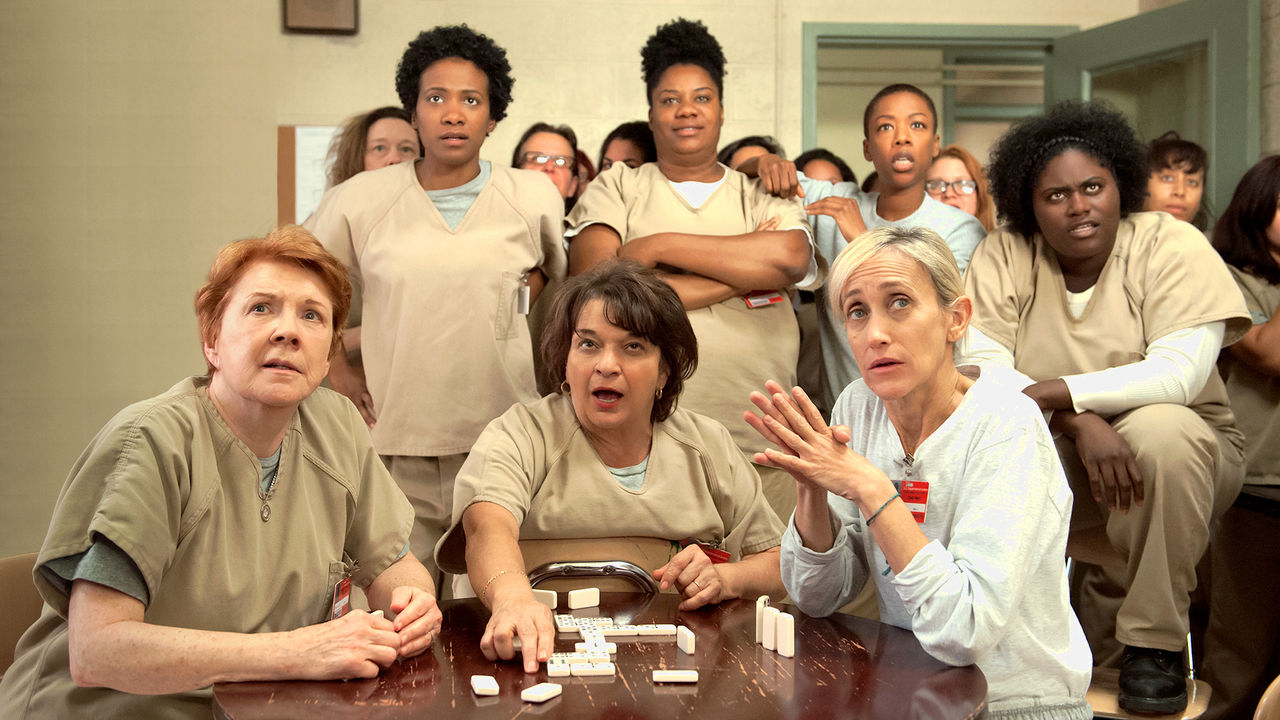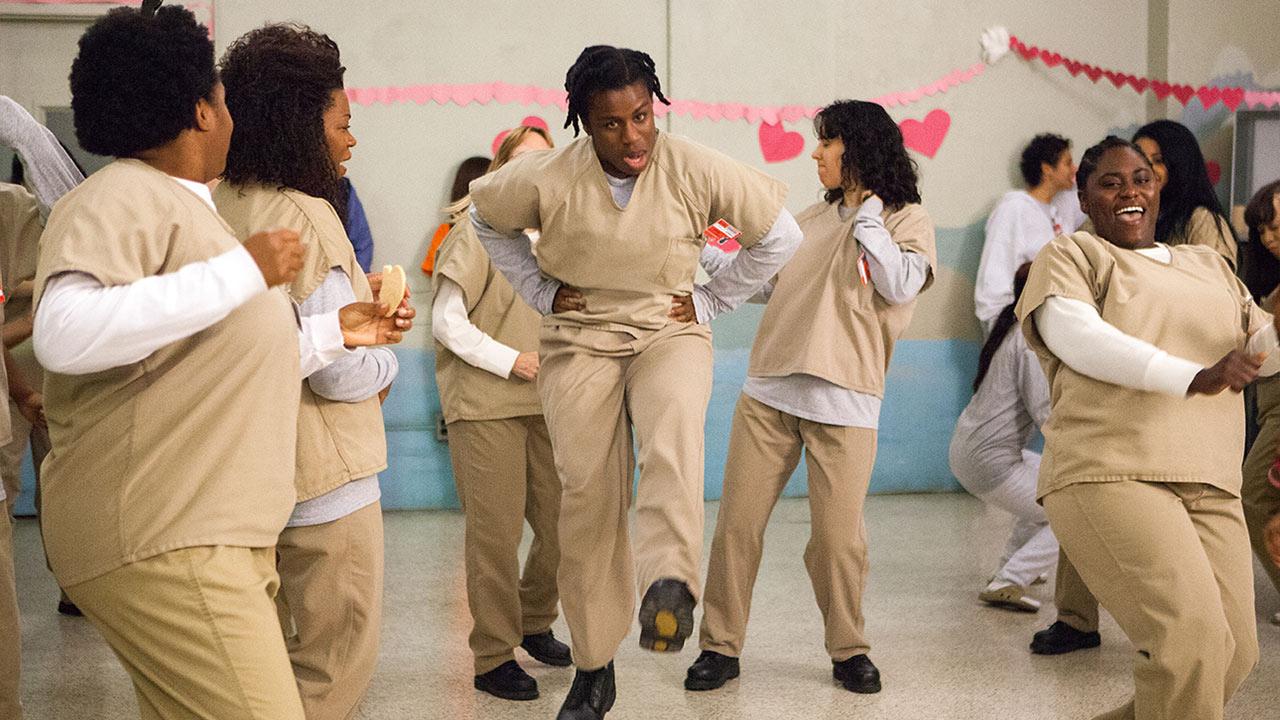Below are my personal choices for this TV season’s 7 Outstanding Drama Series nominees.
As for what I didn’t see, and thus didn’t feel comfortable including on this list: of major Emmy contenders, I fell out of Downton Abbey a while ago and from what I hear from friends/critics, I’m not in any rush to jump back into it. I’ve never been as big a proponent on House of Cards as some, and saw a fair bit of its past third season; I would never include a season I didn’t finish, but I’ve never shortlisted Cards anyway and I’m even less enthusiastic about it at this point. It’s a very similar situation with Game of Thrones, which had some trouble adjusting beyond the books even if this season reached some dramatic peaks. (Again, I haven’t completed the season.) I’m most sad about being behind on Boardwalk Empire, which was getting better and better before I, as tends to happen, fell out of it.
But I’ve watched most everything else relevant. (Especially in the case of drama, it’s impossible to watch it all.) Of those shows that I didn’t rank, I found freshmen Empire, The Leftovers and The Knick promising, as evidenced by my noting it in multiple other categories, but also uneven and not quite at the level of the first-years that ultimately made my top 7. I’m a huge Good Wife fan, but let’s be clear: this past season was a mess and I ended up not citing it in a single category. Another series that made my lineup last year was Masters of Sex, which had a very bumpy -- albeit still, at times, deeply effective -- second season.
Without further ado, here are my seven personal choices for Outstanding Drama Series.
(The blurbs below are lightly-edited excerpts from past writing I've done on the shows.)
The Americans (FX)
The third season of The Americans is among the best I’ve ever witnessed from a television series. As a viewer of most everything quote-unquote great, I realize the magnitude of that statement. But week in and week out, The Americans held an emotional grip and a tonal consistency that’s too rare to even explain. To live with these dilemmas of spirit and morality, and the search for meaning and balance and love -- for who you are, and what you want -- is by no means “fun.” And it’s not exactly engrossing, either. Rather, it’s hypnotic, a delving into human minds and relationships torn by circumstance and forever limited by self-delusion. The profundity Weisberg and Fields mine out of each of these characters, no matter how jaded or disillusioned or oblivious or cruel, is simply magnificent. And the confidence with which they operate -- despite a low viewership, despite the level of despair injected into every episode, despite the emotional rigor with which they imbue every predicament -- is beyond admirable. There’s a lot going on, but by trusting the characters, everything gets its due. Every idea, and every soul, is reckoned with.
Better Call Saul (AMC)
Breaking Bad was so professional and expertly-made in every area of production that, perhaps, we shouldn’t be surprised that Saul has turned out as well as it has. This is a team that knows what it’s doing, that operates with striking confidence, a desire for risk and a comfort with character. Thematically and structurally, Better Call Saul isn’t quite sure what it wants to be just yet. But I can’t put my finger on another show that opened, in its pilot, with such assurance in its pacing and unobtrusive brilliance in its camerawork – the whole thing felt unnervingly polished from moment one. With Dave Porter back on composition duties, the same group of editors returning and Breaking Bad writers such as Thomas Schnauz and Gennifer Hutchinson once again intrinsic to the writing staff, it’s hard not to get caught up in the jovial reunions happening behind-the-scenes. It feels good to be back in their hands.
Bloodline (Netflix)
Bloodline is a pitch-black family saga, one that unfolds at the pace and with the tightness of a novel. The dynamics established, between resentment and guilt and love and hatred and everything in-between, are perfectly pitched and suitably emotional. The performances pack a collective wallop. And in the sunny Florida Keys, the poetic tonal shifts of paradise and what lurks underneath tell the story in a way no line of dialogue ever could. Bloodline establishes a family history, and treats secrets as matter-of-fact. It’s what those secrets do to people -- brothers, sisters, parents -- that drives this story: how roles develop, how abuse manifests, how the expression of affection can mirror guilt more than love. Gripping, haunting and layered with menace, Bloodline is television’s sharpest and most intellectually ambitious foray into the American family. For the Rayburns, the past isn’t only inescapable: it’s who they are. And the more you watch, the more you realize: it’s who we all are.
Justified (FX)
Intriguingly, the sixth and final season of Justified revealed that its swiftly-applied gloss of cable prestige was just that -- gloss. Rich with three-dimensional characters and compelling themes, the show capitalized on its strengths as it headed towards the finish line and pulled back in certain important areas. Raylan, affection for the bad guys and occasional ineffectuality as a lawman notwithstanding, was affirmed as a more classically Western hero, a genuinely “good guy.” His adversary, Boyd Crowder (Walton Goggins), ranged closer to the villainous end of the spectrum than in any past season, while the woman perpetually caught between them, Ava Crowder (Joelle Carter), bounced back and forth with the frequency of a pinball in its prime. But most importantly, Yost and his writers maintained a commitment to having fun. Although it landed at a satisfyingly dramatic point, the season as a whole was as inspired in its comedy and entertaining in its looseness as anything that’d been tried before.
Mad Men (AMC)
Don Draper is a product of American culture. His story is our nation’s fantastical vision of complete reinvention and capitalist success. He built himself from nothing, working his way up the ladder and ditching an identity of hopelessness for one of boundlessness. It’s a process of dreaming and of rapidity, and out of that seeps an element of artificiality. Out of this construction comes a series-long quest for the affirmation of his own happiness, contentment and identity. Each of these ideas are intertwined, yes, but the enduringly fascinating element to Mad Men is the way in which they run parallel, unable to truly ever intersect. Don could be happy with a pitch, but the feeling always wore off. He could be content with Betty, but there was always something more on the outside. And his sense of self, no matter the estimability of his name alone, could never truly be reconciled -- that is, until the sound of a ding and the hint of a smile that would characterize our last moment ever with man himself. The trick of the final shot of “Person to Person,” the series finale of Mad Men, is to understand its genuineness in tandem with its cynicism -- which is to say, to understand it as the series has always been.
Orange Is the New Black (Netflix)
Jenji Kohan’s big, bold, and beautiful series remains one of the most humane and important series on the air, offering a brand of humor both accessible and subversive as it cuts through institutional corruption with astonishing ease. Threaded through the vindictive Vee’s (Lorraine Toussaint) (re-)entrance to the prison, Orange’s sophomore run tensely and bravely tackled social grouping, identifying with keen sensitivity the troubled circumstances under which solidarity can be formed. And though Vee’s presence brought about profound disruption, the season’s building focus on older women coming together and battling for control worked as a perfect conveyance of the show’s consummate power to give voices and agency to the voiceless. Kohan’s innate ability to so richly and individualistically define dozens of characters shined even brighter in the second chapter of her groundbreaking narrative.
Rectify (Sundance)
Ray McKinnon’s glacially-paced, gorgeously-lensed Rectify continues to unfold as a sublime piece of Southern Gothic. In the swampy small community of Pawley, GA, mysteries unfurl at levels both impressively consistent and excruciatingly slow; families are embroiled in matters of misdirected love and unshakable loyalties; and Christian faith and philosophical reasoning combine to underpin a general sense of displacement, anxiety and antagonism. The beauty – the power – of Rectify is that it takes its time, literally drifting where the wind blows and allowing characters to dictate direction. There’s an authenticity to McKinnon’s work that’s so palpable and yet so ingrained. It’s those basic building blocks – investment in character and setting, location of a point-of-view, thoughtfulness in narrative – that, when coupled with such beautifully specific writing and hauntingly powerful performances, allow Rectify to soar.







